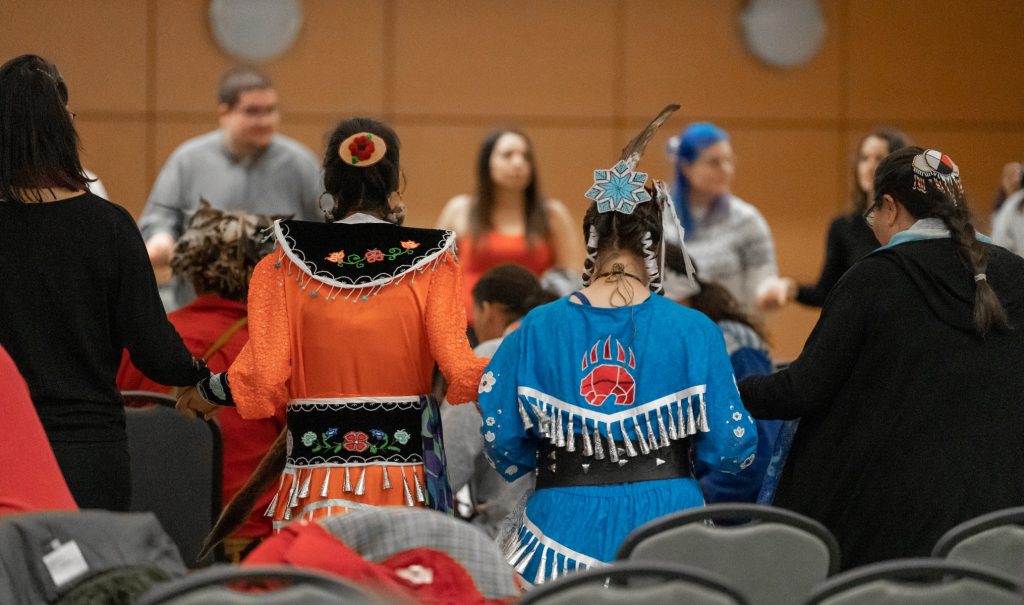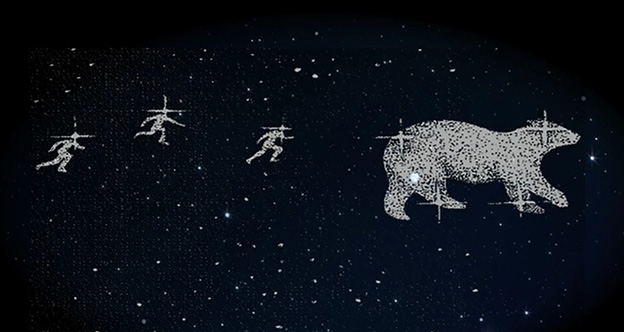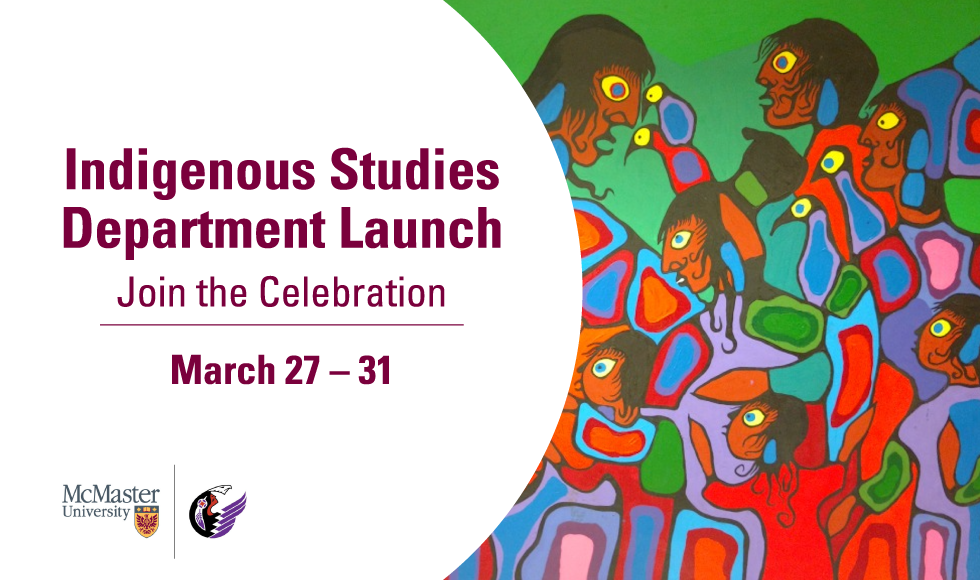
March 22, 2023
Celebrate the launch of the Indigenous Studies department
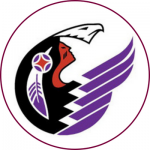 Join the celebration of the official launch of the Indigenous Studies Department at free events all through the week from March 27 to 31.
Join the celebration of the official launch of the Indigenous Studies Department at free events all through the week from March 27 to 31.
The department is home to more Indigenous faculty members than any other Canadian Indigenous Studies department.
This page will be updated with more information and highlights from the launch.
Help us Celebrate Launch Week
“I’m really excited about the events we’re going to have during the week.” Film screenings, planetarium shows, a day of dancing and food — there’s something for everyone. Click here for a rundown of the events.
Everyone is welcome at a lineup of free events through the week.
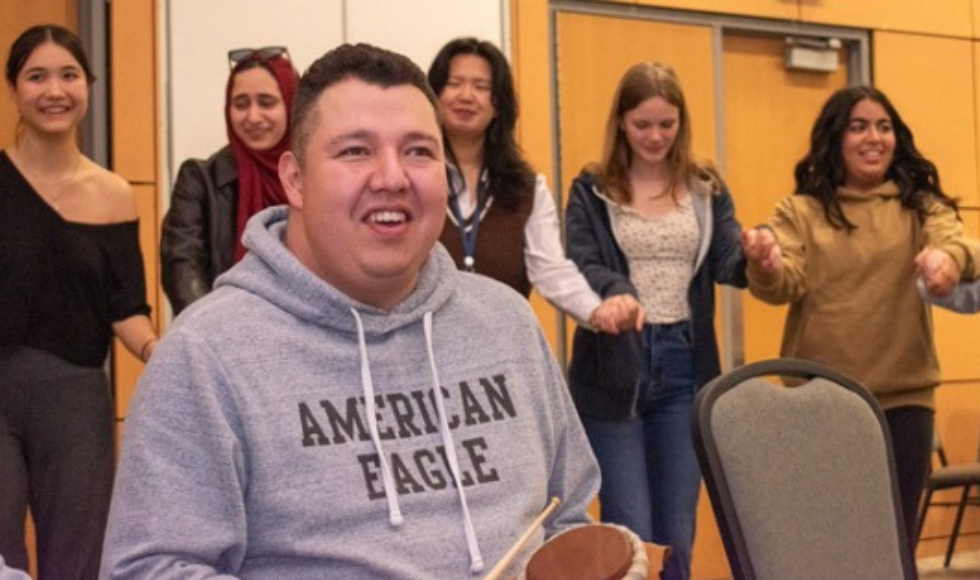
Sample Haudenosaunee flavours at La Piazza
Global Comfort Food in La Piazza is serving a menu full of Indigenous dishes on March 30, as part of the Indigenous Studies department the launch celebration. These dishes are also part of the weekly menu rotation.

What a week! Here’s a recap
‘Thirty years of dedication’ went into the creation of the newest department at McMster. And whether it was speaking Cayuga, hearing Indigenous legends of the night sky, or learning of the role Indigenous ironworkers played in building New York City’s skyline, every activity centred on keeping knowledge alive.
About the Department
The Indigenous Studies Program, founded in 1992, is one of the longest-standing programs of its kind in Canada. Now, Indigenous Studies is embarking on a new chapter as a fully-fledged department.
The department is home to 11 faculty members, the largest number of Indigenous faculty members in an Indigenous Studies department at a Canadian university, as well as sessional faculty from Indigenous communities, and Indigenous administrative staff.
The Indigenous Studies Department may be new, but the history of Indigenous studies at McMaster goes back to 1989.
- 1989 – First Drumbeat Conference organized by Indigenous students and co-hosted by the Six Nations Confederacy, Development of the President’s Committee on Native Students, and the McMaster First Nations Students Association.
- 1992 – Indigenous Studies Program Created offering a three-year BA degree
- 2014 – Indigenous Student Services Department moves to Student Affairs, growing out of work and supports provided through the Indigenous Studies Program
- 2015 – Expansion of the Indigenous Studies Program to a four-year Honours degree
- 2022 – Indigenous Studies Department created under the Faculty of Social Sciences
The Celestial Bear: The Six Nations’ Night Sky
The extremely popular show at McMaster’s W.J. McCallion Planetarium brings together knowledge from Six Nations storytellers and the Indigenous Studies Program with knowledge from the department of Physics and Astronomy to examine powerful connections between ancient legends of the sky and modern scientific observation.
Chief Longboat’s Vision
Chief Harvey Longboat of the Six Nations Confederacy had a vision to develop numerous accredited courses focused on supporting and teaching language, culture and history with an emphasis on Haudenosaunee people. The Indigenous Studies Department works hard to turn that vision into a reality.
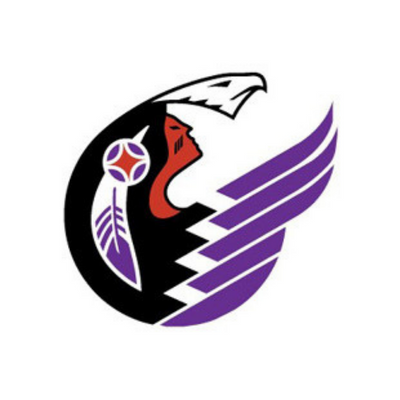
The history of the logo
This logo represents the overall purpose of the Indigenous Studies Program at McMaster University. First Nations artist/designer, Arnold A. Jacobs interprets the logo that he created for the Program: The circular design represents unity and a coming together of First Nations.
The eagle, a spiritual guardian and a symbol of strength and courage, is positioned over a native head that is looking dramatically upward to the future. The native wears a feather, not for decoration, but as a symbol for lifting the human spirit.
Holding the feather in place is the sacred circle of life, divided into four cycles that affect our lives; they are the four directions, four winds, four seasons, and four colours.
The lightning ash represents the Power of the Creator of all things. The wings are given this power to lift the eagle to great heights. This power represents the uplifting spirit to the student for higher achievement.
